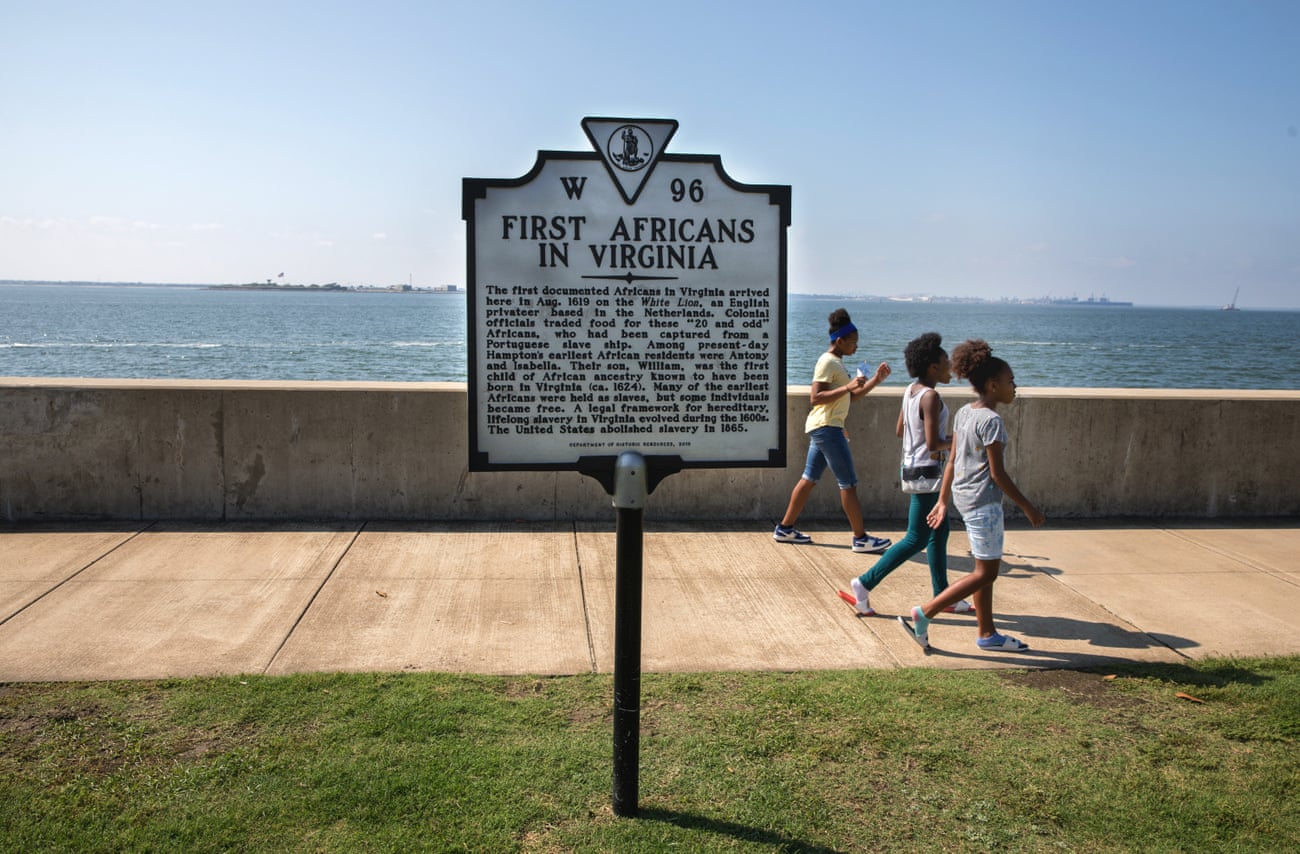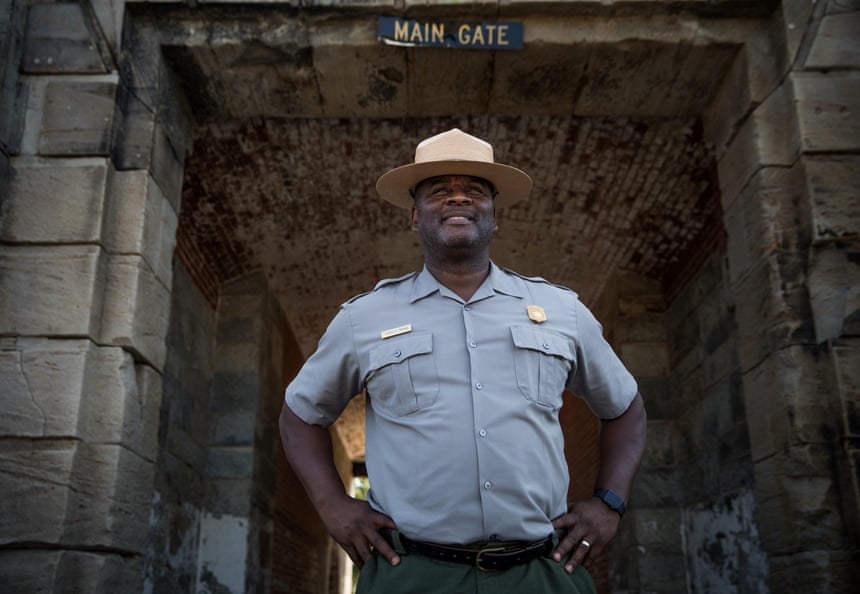by DAVID SMITH

In 1619, a ship with 20 captives landed at Virginia, ushering in the era of slavery in what would become the United States
The blue waters of the Chesapeake lap against the shore. Sunbathers lounge in deckchairs as black children and white children run and play on the beach. And close by stands a magnificent oak tree, its trunk stretching three great arms and canopies of leaves high into the tranquil sky.
Over half a millennium, the Algernoune Oak has witnessed war and peace and the fall of empires, but never a day like the one in late August 1619. It was here that the White Lion, a 160-ton English privateer ship, landed at what was then known as Point Comfort. On board were more than 20 captives seized from the Kingdom of Ndongo in Angola and transported across the Atlantic. This dislocated, unwilling, violated group were the first enslaved Africans to set foot in English North America – ushering in the era of slavery in what would become the United States.
This site, now Fort Monroe in Hampton, southern Virginia, will host a weekend of 400th anniversary commemorations on 23-25 August, culminating in a symbolic release of butterflies and nationwide ringing of bells. Americans of all races will reflect on a historical pivot point that illuminates pain and suffering but also resilience and reinvention. Some see an opportunity for a national reckoning and debate on reparations.
For a people robbed of an origins story, it is also an invitation to go in search of roots – the African in African American.

“Once I learned that I was from there it changed something in me,” said Terry E Brown, 50, who has traced his ancestry to Cameroon and enslaved people in Virginia and North Carolina. “I have a fire in me to just learn about why and who I am. There’s something deep down and spiritual about it and I want to connect to it. I’m American, and I believe in this structure that we have, but I’m emotionally and spiritually tied to Africa now that I know where I came from.”
The Guardian for more
